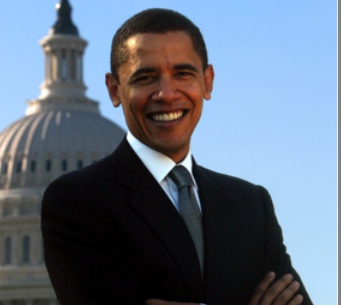
He was speaking after White House talks with EU Commission chief Jose Manuel Barroso, EU foreign policy chief Javier Solana, and Prime Minister Fredrik Reinfeldt of Sweden, who holds the EU presidency.
Earlier Tuesday in Tehran, Iran's supreme leader Ayatollah Ali Khamenei had lashed out at the United States, saying Tehran would reject any new nuclear talks backed by its arch-foe because Washington was not to be trusted.
"Every time they have a smile on their face, they are hiding a dagger behind their back," said the country's top cleric who has the final say on all Iranian national issues.
"Iran will not be fooled by the superficial conciliatory tone of the United States," he said in a speech to students on the eve of an annual anti-American rally.
Khamenei's salvo raised the possibility that the Washington-backed nuclear fuel deal for a Tehran research reactor may be derailed, despite world powers turning up the heat on Iran.
Under the deal, brokered by the UN's International Atomic Energy Agency (IAEA), Iran would send its low-enriched uranium abroad for conversion into fuel for the reactor. Iranians say they would rather buy the fuel directly.
"Look, we have, not just we, but the IAEA and Russia and France has on the table, a very good proposal that will help Iran become better integrated in the international community, will be the first step towards ending its isolation," said US State Department spokesman Ian Kelly.
"And we would urge Iran to accept the proposal as it's laid out by the director general of the IAEA, Doctor (Mohamed) ElBaradei," Kelly said.
Pressuring Iran to accept the deal, US Secretary of State Hillary Clinton said in Morocco on Monday: "This is a pivotal moment for Iran.
"Acceptance fully of this proposal would be a good indication that Iran does not wish to be isolated and does wish to cooperate."
World powers led by Washington are backing the deal as they want to remove Tehran's stock of low-enriched uranium, which they fear could be further enriched by Iran to very high levels and used to make atomic weapons.
Tehran denies seeking to develop a weapons capability.
Also in Washington hitting out at Tehran, and Iranian President Mahmoud Ahmadinejad in particular, was German Chancellor Angela Merkel.
"A nuclear bomb in the hands of an Iranian president who denies the Holocaust, threatens Israel and denies Israel the right to exist is not acceptable," she said in a rare address to the US Congress.
-------------------------------------------------------------------------------------------------------------------------------
Earlier Tuesday in Tehran, Iran's supreme leader Ayatollah Ali Khamenei had lashed out at the United States, saying Tehran would reject any new nuclear talks backed by its arch-foe because Washington was not to be trusted.
"Every time they have a smile on their face, they are hiding a dagger behind their back," said the country's top cleric who has the final say on all Iranian national issues.
"Iran will not be fooled by the superficial conciliatory tone of the United States," he said in a speech to students on the eve of an annual anti-American rally.
Khamenei's salvo raised the possibility that the Washington-backed nuclear fuel deal for a Tehran research reactor may be derailed, despite world powers turning up the heat on Iran.
Under the deal, brokered by the UN's International Atomic Energy Agency (IAEA), Iran would send its low-enriched uranium abroad for conversion into fuel for the reactor. Iranians say they would rather buy the fuel directly.
"Look, we have, not just we, but the IAEA and Russia and France has on the table, a very good proposal that will help Iran become better integrated in the international community, will be the first step towards ending its isolation," said US State Department spokesman Ian Kelly.
"And we would urge Iran to accept the proposal as it's laid out by the director general of the IAEA, Doctor (Mohamed) ElBaradei," Kelly said.
Pressuring Iran to accept the deal, US Secretary of State Hillary Clinton said in Morocco on Monday: "This is a pivotal moment for Iran.
"Acceptance fully of this proposal would be a good indication that Iran does not wish to be isolated and does wish to cooperate."
World powers led by Washington are backing the deal as they want to remove Tehran's stock of low-enriched uranium, which they fear could be further enriched by Iran to very high levels and used to make atomic weapons.
Tehran denies seeking to develop a weapons capability.
Also in Washington hitting out at Tehran, and Iranian President Mahmoud Ahmadinejad in particular, was German Chancellor Angela Merkel.
"A nuclear bomb in the hands of an Iranian president who denies the Holocaust, threatens Israel and denies Israel the right to exist is not acceptable," she said in a rare address to the US Congress.
-------------------------------------------------------------------------------------------------------------------------------









 Home
Home Politics
Politics









